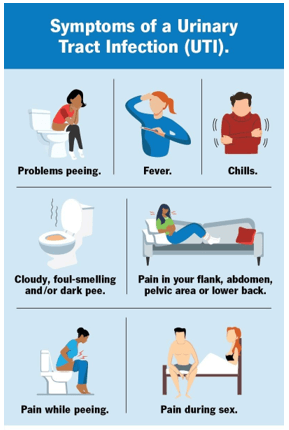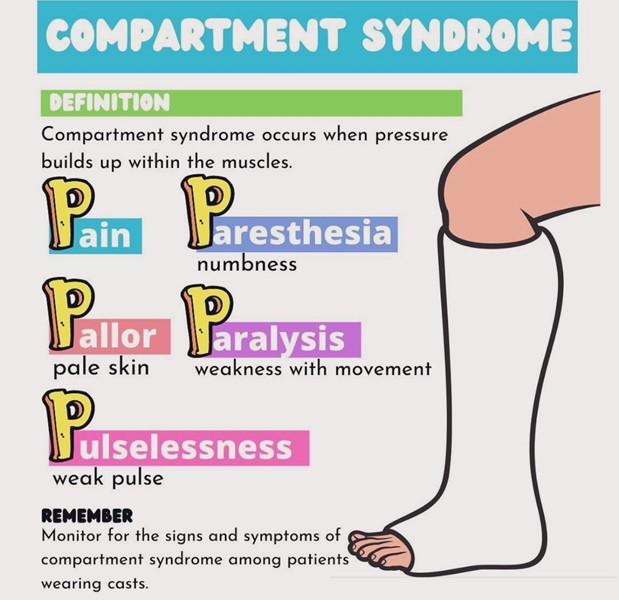A nurse is assisting with the care of a client in a medical-surgical unit.
Vital Signs
05:00
Temperature 36.6 C (97.9 F)
Heart rate 100/min
Respiratory rate 22/min
Blood pressure 160/98 mm Hg
Oxygen saturation 96% on oxygen 2 L/min via nasal cannula
14:00
Temperature 36.8 C (98.3 F)
Heart rate 90/min
Respiratory rate 18/min
Blood pressure 138/88 mm Hg
Oxygen saturation 97% on oxygen 2 L/min via nasal cannula
Which of the following actions should the nurse take to decrease the risks for a urinary tract infection for this client? Select all that apply.
Encourage the client to drink 3,000 mL of fluid daily.
Change the indwelling urinary catheter tubing every 3 days.
Place the drainage bag on the bed when transporting the client.
Empty the drainage bag when it is half-full.
Review the need for the indwelling urinary catheter daily.
Use soap and water to provide perineal care.
Correct Answer : A,D,E,F
To decrease the risks for a urinary tract infection for this client, the nurse should take several actions. The nurse should encourage the client to drink 3,000 mL of fluid daily to help flush bacteria out of the urinary tract¹. The nurse should also empty the drainage bag when it is half-full to prevent bacterial growth¹.
Additionally, the nurse should review the need for the indwelling urinary catheter daily and use soap and water to provide perineal care¹.

Nursing Test Bank
Naxlex Comprehensive Predictor Exams
Related Questions
Correct Answer is D
Explanation
A. Room number of the client:
- The room number alone is not sufficient for accurate client identification. Room numbers may change, and multiple clients may share the same room. Relying on the room number alone can lead to errors.
B. Client's telephone number:
- The client's telephone number is not typically used as a primary identifier for medication administration. It may be part of the client's record, but it is not the primary means of confirming identity before administering medications.
C. Client's full medical diagnosis:
- While the client's medical diagnosis is important for understanding their overall health condition, it is not a primary identifier for medication administration. Diagnoses can be complex and may not be unique to a single individual within a healthcare setting.
D. Name of the client:
- Matching the client's name with their identification band or other official records is a crucial step in preventing medication errors and ensuring the right medication is given to the right person.
Correct Answer is B
Explanation
Numbness of the toes following a femur fracture can indicate potential nerve compromise or damage, which requires immediate attention. Nerve compression or injury can lead to long-term complications if not addressed promptly. It is important for the nurse to assess the client's neurovascular status, including circulation, sensation, and movement, to determine if there is any compromise to the affected limb.

A client with cirrhosis and severe pruritus can be seen next, as pruritus can significantly affect the client's comfort and quality of life. However, it is not immediately life-threatening.
A client who had a renal biopsy 3 hours ago and has pink-tinged urine should be assessed, but this finding is expected after a renal biopsy. The nurse should ensure that the client is monitored for any signs of bleeding or complications, but it may not require immediate attention unless the bleeding worsens or other concerning symptoms arise.
A client who had a laparoscopic appendectomy 8 hours ago and is awaiting discharge can be seen last, as long as there are no complications or signs of postoperative issues. The nurse should ensure that the client is stable, comfortable, and meeting the necessary criteria for discharge.
Whether you are a student looking to ace your exams or a practicing nurse seeking to enhance your expertise , our nursing education contents will empower you with the confidence and competence to make a difference in the lives of patients and become a respected leader in the healthcare field.
Visit Naxlex, invest in your future and unlock endless possibilities with our unparalleled nursing education contents today
Report Wrong Answer on the Current Question
Do you disagree with the answer? If yes, what is your expected answer? Explain.
Kindly be descriptive with the issue you are facing.
